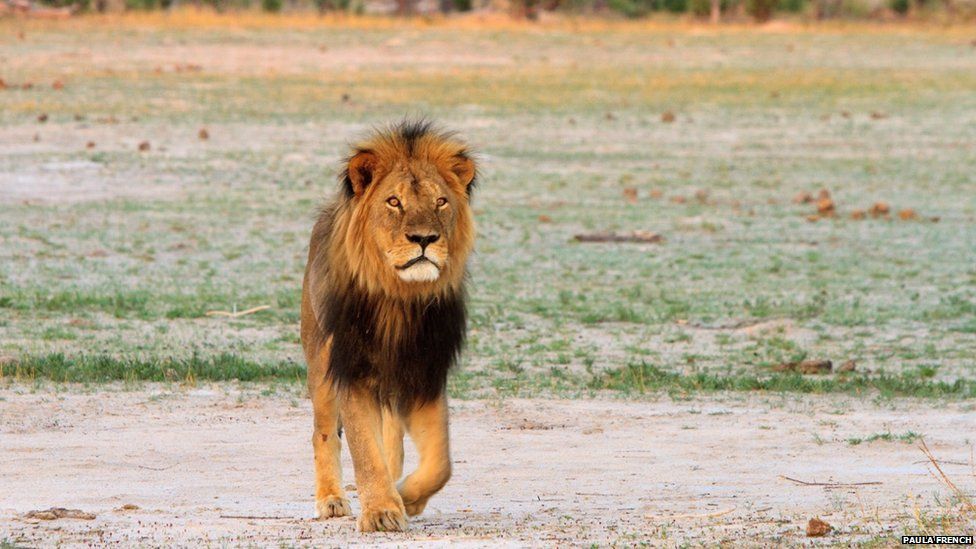-
27 July 2015
- From the section Africa

A hunter allegedly paid a $55,000 (£35,000) bribe to wildlife guides to kill an “iconic” lion in Zimbabwe, a conservationist has told the BBC.
Allegations that a Spaniard was behind the killing were being investigated, Johnny Rodrigues said.
The lion, named Cecil, was shot with a bow and arrow and rifle, before being beheaded and skinned, he added.
The 13-year-old lion was a major tourist attraction at Zimbabwe’s famous Hwange National Park.
Zimbabwe, like many African countries, is battling to curb illegal hunting and poaching which threatens to make some of its wildlife extinct.
Mr Rodrigues, the head of Zimbabwe Conservation Task Force, said the use of a bow and arrow heralded a new trend aimed at avoiding arrest.
“It’s more silent. If you want to do anything illegal, that’s the way to do it,” he told BBC’s Newsday programme.
‘Lion baited’
However, the lion, which had a distinctive black mane, did not die immediately and was followed for more than 40 hours before it was shot with rifle, Mr Rodrigues said.
The animal had a GPS collar for a research project by UK-based Oxford University, allowing authorities to track its movements.
Mr Rodrigues said Cecil’s killing was tragic.
“He never bothered anybody. He was one of the most beautiful animals to look at.”
The lion had been “baited” out of the park, a tactic which hunters used to portray their action as legal, Mr Rodrigues said.
Two guides had been arrested and if it was confirmed that the hunter was a Spaniard, “we will expose him for what he is”, he added.
The six cubs of Cecil will now be killed, as a new male lion in the pride will not allow them to live in order to encourage the lionesses to mate with him.
“That’s how it works… it’s in the wild; it’s nature taking its course,” Mr Rodrigues said.


